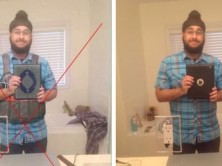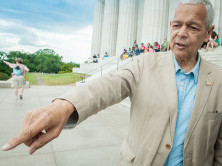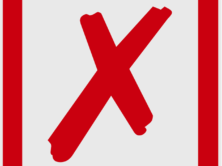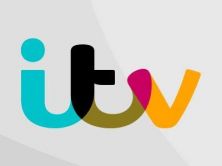
(Credit: Flickr, "flash.pro")
UK broadcast regulator OfCom investigated editorial independence in documentaries.
The OfCom investigation began in 2011, following an investigation by the UK Independent, the Press Gazette reported. OfCom said it investigated more than 1,000 programs between 2009 and 2011 shown in more than 200 countries by BBC World News, CNBC and CNN. In total, the code was broken “almost 50 times,” according to the Guardian.
The Independent‘s Aug. 2011 report found that Malaysia’s government had been paying FactBased Communications millions of dollars for positive coverage in the news media. The Aug. 17, 2011 story was headlined: “Special Investigation: TV Company takes Millions from Malaysian government to make documentaries for BBC…about Malaysia.”
Now that the investigation is over, OfCom will “meet with broadcasters to discuss how to ensure the conflicts do not arise again, and is preparing to publish fresh guidelines on how to approach news and current affairs programming funded by outside companies,” according to the Guardian.
In its Aug. 17 broadcast bulletin, OfCom explained that broadcasters can not be “subject to undue influence” in its “factual programming” such as documentaries and news.
“This is particularly important when content is either acquired from, or provided by, third parties with separate commercial interests,” OfCom explained. “Many broadcasters show commercially funded content. Often this funding is crucial to ensure that factual programming…is available.”
Problems include when “factual content expressing a particular viewpoint or position is funded by, or acquired from, third parties.”
OfCom explained it didn’t want to highlight “individual breaches of the code,” but instead it wanted to look at the broader issues like “identifying the circumstances in which editorial independence and due impartiality were most likely to come under pressure.”
“Although the investigation identified a number of practices which took place in the period under review that were at odds with the Code, we did not find evidence that the way programmes were funded compromised the broadcasters’ editorial independence.” OfCom said.
OfCom found that BBC World News and CNBC “acquired programming from [FactBased Commmunications] at a low or nominal cost” and CNBC even was “paid by FBC” to air its documentaries.
The BBC Trust conducted its own investigation into its programming in 2011. The BBC World News told OfCom it didn’t know the Malaysian government paid FBC, it didn’t think the content was “sponsored” but that it agreed it wasn’t “appropriate” to use the FBC programs given the concerns.
“We acknowledge that a conflict of interest existed here, in breach of the BBC’s Editorial Guidelines, and that this relationship could have undermined our editorial independence,” BBC World News told OfCom about the FBC programs, noting it didn’t know about the conflict of interest when it aired the programs.
The BBC aired an apology in 2012 for the documentaries, the Independent reported at the time.
Related to other programs not from FBC, BBC World News said it often aired “free and low cost programming” provided by NGOs and UN agencies, but no longer does. After OfCom questioned some of the programs, the BBC World News “accepted that the funding arrangement and the content of the programme” amounted to sponsorship and that the funders “were not suitable.”
“Although we were not of the view that the programmes met the definition of sponsorship at the time of the transmission, we did ensure that the relationship between the funder of the programme and its content was clear by including a statement in each programme’s end credits in all but 2 programmes,” the BBC World News told OfCom in part.
OfCom also looked into the World Business program aired on CNBC since FBC produced it. “Between 2008 and 2011, FBC paid CNBC an annual seven-figure (US dollars) fee to broadcast the series,” OfCom reported.
CNN, which had 26 breaches of the code related to impartiality and sponsorship the Independent said, told the Guardian:
“We welcome Ofcom’s conclusion that the way our programmes were funded did not compromise CNN International’s editorial independence. Ofcom also found that we have been completely transparent with our audience in the labelling of our sponsored content. In addition, it has been established that all CNN International’s content continues to comply with our high standards of impartiality.”
“We do, however, recognise and accept that a very small portion of our sponsored content fell under what Ofcom categorises as current affairs, which under UK regulations may not be sponsored.”
CNBC, which had only “one breach relating to the impartiality of one of its presenters,” the Guardian said, declined to comment to iMediaEthics about the OfCom ruling.
The BBC, which had 20 breaches for sponsorship, told iMediaEthics:
“The BBC Trust investigated these issues in 2011 and we apologised to viewers on air in February 2012. We introduced a number of changes to our procedures to strengthen the protection of our editorial integrity at the time and a subsequent audit concluded that the measures were robust and working well. We accept Ofcom’s findings and wish to re-iterate our commitment to the highest standards of broadcasting. We are pleased that Ofcom welcomes the steps we originally took, and continue to apply, to prevent further issues and we in turn look forward to working with Ofcom and the other broadcasters involved to develop best practice guidelines to help maintain compliance with these aspects of the Code in this complex area.”
Moving forward: OfCom’s guidance
“It is clear from this work that complex funding arrangements from third-party funders carry inherent risk to independence and editorial integrity,” OfCom wrote. Moving forward, OfCom plans to “develop best practice guidelines” related to the matter.
If a third party pays for a program, regardless of who the third party is, OfCom said broadcasters need to disclose the funder and any conflicts of interest of the funders to “preserve editorial integrity.”
In addition, “sponsors’ interests cannot be promoted in the content of the sponsored programme” because “this would amount to advertising.”
CORRECTION - September 1, 2015 21:15 PM
The BBC World News documentaries in question weren’t broadcast in the UK. We regret the error.






